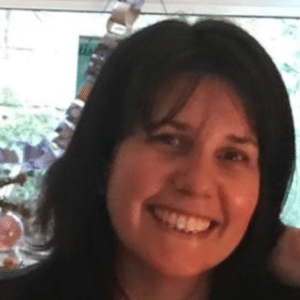27th June 2022
27 June-3 July 2022 marks National Breastfeeding Week, and we are delighted to share this Voices blog from Gail Barker, Health Visitor Professional Lead for Devon Public Health Nursing and Service Development Lead for PHN Exeter, Eastern & Crediton Public Health Nursing team.
This year’s awareness raising week has a focus on everyone having a part to play in helping parents to breastfeed. This is something that, as health visitors (HV), we know and recognise, but the extent of this is huge and often hidden. The breastfeeding support that professionals provide to parents is really important, however it is just one part of the story. Our influence is not just in relation to the support we give to mums… as health visitors, we have a huge remit around support and signposting for the whole family including, fathers, grandparents, same sex parents, transgender parents, adoptive parents, friends, and colleagues.
We also support wider understanding around the challenges of breastfeeding, and the difference that getting the right support can make, through our discussions with commissioners, councillors, health and wellbeing boards and workplaces. In addition to this, we can influence policies affecting health, both through ensuring that the role of the health visitor in supporting breastfeeding is widely understood and by highlighting how this improves public health outcomes. There is strong evidence that breastfeeding supports numerous key public health priorities including improving perinatal and infant mental health, oral health and outcomes for preterm and sick babies, as well as obesity prevention. Health visiting has also been recognised as one of six essential services that is central to the delivery of the Government’s recent policy, “The best start for life: a vision for the 1,001 critical days”.
None of us are alone in this – everyone has a part to play in helping parents to breastfeed. Here are some ideas to get you started:
- Who are your breastfeeding champions within your local authority system?
- Will your public health department do some joint breastfeeding communications for either National Breastfeeding Week, or World Breastfeeding Week, 1-7 August 2022?
- If they haven’t already, ask them to help you locate and interpret your local breastfeeding and public health data (age, population characteristics and other demographics as a baseline) and consider how you can achieve a population change in breastfeeding rates. For example, you may want to focus on targeting grandparents, workplaces, and male orientated industries.
- What about your planning departments – do they know the importance of breastfeeding friendly designs with breastfeeding friendly spaces in parks, workplaces, businesses, and service stations?
- Can you influence your environmental health officers? Would they take forward a restaurant ‘breastfeeding welcome’ scheme and incorporate discussions with premises as part of their environmental health checks?
- What about your leisure centres? – is there a join up with healthy lifestyle groups that promote physical activity during pregnancy and in the postnatal period, with breastfeeding peer support?
- What collaboration could you have by working with all your public libraries?
- Can you influence your social care department through delivering training about building close and loving relationships through breastfeeding for parents who would benefit from a supportive approach?
- What about early years settings – are they aware of the importance of responsive feeding? You can share some key resources with them: Responsive Feeding Info sheet (unicef.org.uk)
- What about foster parents and children in care? Also consider adoption and induced lactation – are the services supporting families even aware of the possibility of this?
Let’s think about partners, dads, and grandparents (they are often there when services are not)
- Could you deliver an infant feeding resource to non-birthing parents on how to support breastfeeding?
- Could you teach these parents and wider family ‘supporters’ about attachment and positioning so that they can support their partners, especially at 2am in the morning!
- Key messages could really make a difference, such as:
- nose to nipple or chin to skin (the new phrase)
- knowing how to watch for the important asymmetrical latch using the CHIN principles (Close, Head Inline, Nose to nipple)
- knowing how much their baby needs to tip their head back to get that deep latch?
What about teaching normal breastfeeding expectations?
- A breastfed baby will feed 8-12 times in 24 hours sometimes more!
- Listening and watching for swallowing
- A settled baby who wakes for feeds and has plenty of wet and dirty nappies are signs that their baby is taking enough breastmilk
- Sharing resources such as NHS Breastfeeding: is my baby getting enough milk?, Best Beginnings videos and UNICEF Baby Friendly Initiative resources
What about peer support?
- What are your partnerships with peer supporters and how do you work with them to jointly support parents to breastfeed?
- Do parents in your area know how to access peer support?
- Can peer supporters help HV services, through group sessions or specific feeding sessions?
- How do you support parents who have overcome challenges to successfully breastfeed to become a peer supporter themselves?
There are so many opportunities for us to influence before we even think about marketing, neonatal links, mental health services, and food banks. The list is endless! However, it wouldn’t be right for us to forget the mothers (or birthing parents) and babies when we think about influencing:
- What support do they want?
- What support do they need as individuals, or as communities?
- How does it feel to breastfeed in your area?
- What support would they like to continue, improve, or develop to support them to breastfeed?
How do we learn from them and work together with them to improve services and our reach, because everyone really does have a part to play in supporting parents to breastfeed?
With each of us taking small steps we can all make a big difference!







